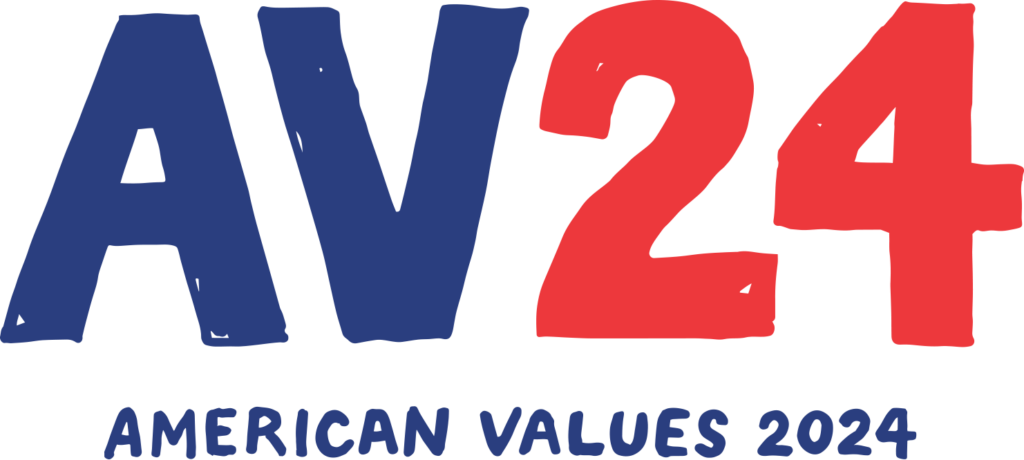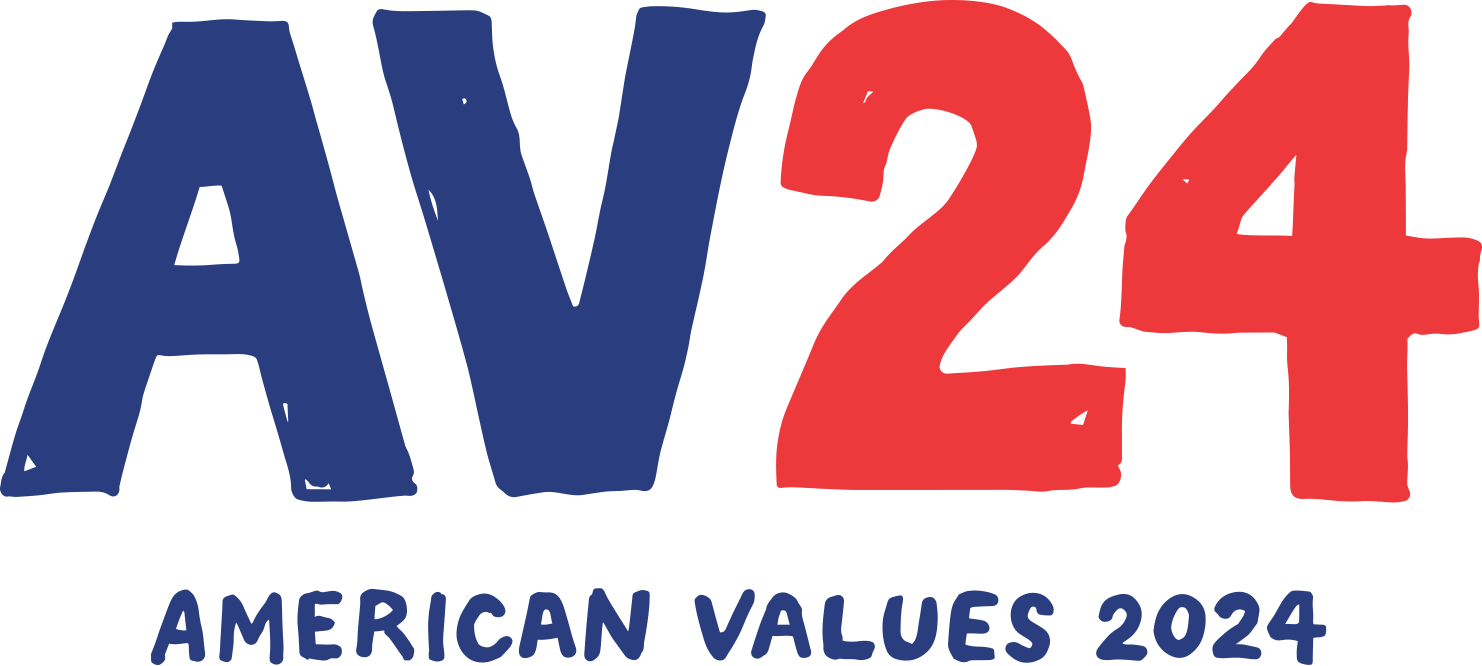Biased Polls Are Designed to Exclude Kennedy From Debates
American Values 2024 | May 21, 2024
By Leah Watson, The Kennedy Beacon
President Biden and former President Trump have agreed to debate on June 27 on CNN and September 10 on ABC News. As
Kennedy has stated on X (formerly Twitter) that he is confident he will meet the polling and other requirements to participate in the debate. He has also stated that he is in discussions with CNN to join the debate.
A majority of voters approve. A new Harvard CAPS - Harris Poll found 71% of voters want the debates to include candidates outside of the two major parties, as reported on May 20 in The Hill and Newsweek.
In order to participate in both scheduled presidential debates, candidates must have an average of 15% in “reputable” polls, which CNN identifies as CNN, ABC News, CBS News, Fox News, Marquette University Law School, Monmouth University, NBC News, the New York Times/Siena College, NPR/PBS NewsHour/Marist College, Quinnipiac University, the Wall Street Journal, and the Washington Post.
Citing polling report website 538, Forbes claims, “Kennedy was polling at just over 10% on average in national polls as of Wednesday.” Some of the polls used to calculate the average may have used small samples, some may not have even included Kennedy’s name, or may have been biased in some other way.
Large Unbiased Poll Shows Kennedy Beating Biden and Trump
In a new poll issued by the Kennedy campaign, John Zogby Strategies surveyed over 26,000 people across all 50 states and the District of Columbia. Unlike polls mentioned above with survey samples of 2,000 or less, this massive poll has a 0.6 margin of error. Crucially, Zogby’s poll queried “respondents across every single one of the states with enough coverage in every state to be able to actually allocate the electoral votes as if the election happened today,” said Kennedy’s campaign manager Amaryllis Kennedy at a New York event on May 1.
As reported by The Kennedy Beacon, the poll shows that in a two-way race between Kennedy and Trump, Kennedy wins by 2 electoral votes. In a two-way race between Kennedy and Biden, Kennedy wins by a landslide with 367 electoral votes.
According to other respected polls, Kennedy should qualify for debates. In an April poll conducted by Monmouth, Kennedy received 18% support. In a separate April poll by Quinnipiac, Kennedy received 16% support. Two polls conducted in March by Harvard-Harris and Forbes/Harris both showed Kennedy receiving 15% support.
What Makes a Poll Biased?
Why do political polls often have wildly different results? Is it the way the questions on surveys are asked? Could it be the methods of data collection?
Results from a recent poll conducted by Economist/YouGov show Trump at 44%, Biden at 43% and Kennedy at 3%. For this poll, it appears that the first three options presented were: Biden, Trump, or Someone Else. Of those who chose “Someone Else,” it seems only a few volunteered the name of their preferred candidate. This is one of a number of ways in which poll results can be skewed and manipulated.
Such misleading mainstream polls dominate the news cycle and influence people’s perspectives. According to Fairness & Accuracy in Reporting (FAIR), mainstream polls “are so much a part of the media wallpaper that we’re apt to miss how arbitrarily they limit people’s sense of wider possibilities.” The article quotes media critic Herbert Schiller, who says that “ordinary polls reduce, and sometimes eliminate entirely the … true spectrum of possible options, the possibilities and preferences they express are better viewed as ‘guided’ choices.”
An ideal poll clearly states its methodology and describes accurately what questions were asked in the survey. The most scientific polls pull data from a large random sample, as this yields the best non-biased results and reflects the population demographics.
However, with many polls, doing the difficult work of collecting a large sample has been replaced with the practice of “weighted” polling, a method that makes samples appear to fit with the demographics as large random samples do. Pollsters sample a thousand or so people, from which some respondents are removed according to age, education, race/ethnicity, gender, etc. The practice might more accurately be called “cherry-picking,” because bias is introduced.
Many so-called “reputable” polls use weighted data and categorize people based on various demographics as if they were objects that can be put into appropriate compartments. Such sorting methods try to mimic what works well to predict outcomes in the hard sciences, but human beings are inherently unpredictable, and weighted polls can never be as accurate as polls that use large random samples.
A Fortune commentary by Jeffrey Sonnenfeld and Steven Tian published in November 2022 states, “National Opinion Research Center, Pew, and Edelman have better methods, larger samples, and avoid daily headline-driven overnight readings.” But the media tends to lean towards “partisan pollsters with reputable institutions together in their analysis.”
Yet another factor that promotes inaccurate polling is referred to as “herding.” Herding, as defined by 538, is “the tendency of polling firms to produce results that closely match one another, especially toward the end of a campaign.” However, when every poll agrees, “it’s sometimes a case of the blind leading the blind,” 538 writes.
Many popular polls claim to have a margin of error of around 3%. However, as reported by The Week, which quotes data from the Pew Research Center, “the real margin of error is often about double the one reported,” making it closer to 6 or 7%. “The notion that a typical margin of error is plus or minus 3 percentage points leads people to think that polls are more precise than they really are,” Pew wrote.
No poll is without errors and inaccuracies. While some polls can paint a semi-accurate picture of how the nation feels, other polls influence voters using crowd psychology. When polls present bias, they manipulate the voter unknowingly. Elections become horse races with people betting on the candidate they’ve been led to believe will be the winner.
Even as more attempts are made by the Uniparty to exclude, censor, and criticize Kennedy, his poll numbers have been increasing. Part of the reason is an increase in press coverage, positive or negative, which informs more people that he is running for president.
Leah Watson is a reporter for The Kennedy Beacon. She has contributed articles to the Rangeley Highlander and is a graduate of Sarah Lawrence College.
American Values 2024, which funds The Kennedy Beacon, is supporting a challenge to CNN to include Kennedy in the scheduled debates. For more information, please visit letkennedydebate.com.

